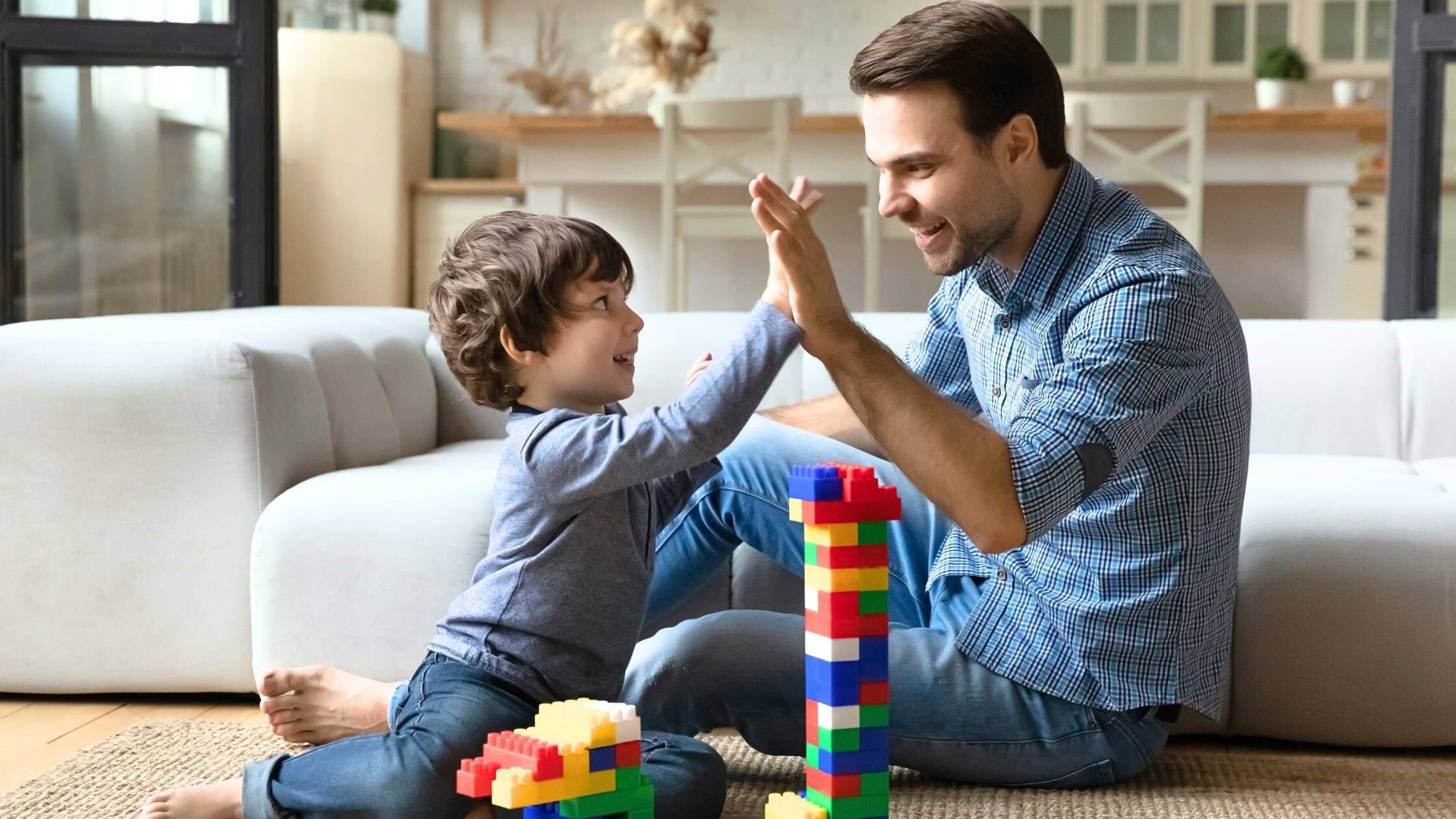Dad clapped and said, "I'm so proud of you son!" when tiny Joe successfully tied his shoelaces for the first time. A simple phrase yet so powerful, because it acknowledges the hard work, celebrates the win and boosts self-esteem. Noticing and praising the efforts of your child is the basis of positive reinforcement, which is important in early childhood education..
During childhood, every word, deed, and memory leaves a lasting impression that supports their academic, emotional, and social growth. Positive reinforcement is an effective and successful strategy for accomplishing this.
What is positive reinforcement?
One strategy that alters children's perceptions of the world and themselves is positive reinforcement. It not only a parenting method but involves recognizing their strengths and assisting them in overcoming challenges which will enhance their self-worth and mental health. This approach results in happy, strong, and curious children.
Praising them like, "I love how kind you are” on donating old toys to needy kids will increase the likelihood of them repeating the same action in the future. Focusing on rights rather than wrongs can have a significant effect on developing brains.
The Worth of Positive Reinforcement
Children learn best when they are encouraged. Positive reinforcement can influence the situations for the following reasons:
-
Promotes good conduct: When children are constantly praised for their good behavior, they develop habits that are good to them and the people around them.
-
Strengthens relationships: Positive reinforcement creates a supportive environment for children to strengthen their relationships with everybody by expressing themselves freely.
-
Boost self-esteem- Kids feel appreciated and capable when acknowledged for their good deeds like, “You did nice work by cleaning up your room”, or “You are doing great in your studies”.
-
Encourage a love for learning: Promoting curiosity and problem-solving skills leads to a lifetime love for learning. For example, “Wow such a unique method to solve this problem” infuses joy and interest.
Practical approaches to apply positive reinforcement
Positive reinforcement doesn't always need grand gestures, simple consistent efforts can provide significant results. Here are some practical ways to incorporate it into daily life:
-
Appreciate efforts and not just results: Recognize the process, not just the outcomes. Saying you played well is more meaningful than focusing on the win.
-
Set realistic goals: Divide the tasks into small segments and celebrate each milestone whether it's writing the first short story or cleaning the room.
-
Praise with intent: Be specific when giving compliments instead of “Great work” try “You put so much hard work into that painting, I really like your efforts”.
-
Use Immaterial rewards: High-fives, hugs, kisses, mini dance sessions, or letting your child do special activities are some example of meaningful rewards.
-
Use visual rewards: For children, visual rewards are a great way to encourage a sense of accomplishment. For example, interactive reward wheels with options like extra play or story time and colorful badges or ribbons create excitement and motivation to do their best.
Overcoming Restrictions
Despite its benefits, positive reinforcement necessitates consistency and harmony. Here are some pointers to steer clear of typical challenges:
Follow balanced guidance: Overlooking mistakes is not a form of praise, instead give kind guidance like “Next time, let's try to stay calm when angry”.
Take a personalized approach: Every child is unique, so observe their motivational factors as some children respond to verbal praises while others may like material rewards.
Avoid overpraising: Giving too much praise could lose its effectiveness. Be sure that your statements are timely and honest.
The Long-lasting Effect
The benefits of positive reinforcement are not limited to children. Positively oriented surroundings increase the likelihood that children will grow up with strong self-esteem, improved problem-solving skills, and more wholesome relationships. They pick up skills that will be extremely useful as adults, such as navigating obstacles with hope and dealing with disappointments with courage.
Parents and other adults who care for children can create an atmosphere where children feel appreciated, cherished, and encouraged to realize their full potential by implementing positive reinforcement into daily interactions.
Final Thoughts
An easy yet effective method of guiding kids through their early years is positive reinforcement. Praising hard work, acknowledging generosity, or celebrating minor victories are all ways that this strategy will help mold a generation of self-assured, sympathetic, and emotionally adaptive individuals.
Your go-to source for parenting and caregiving assistance, Wondrfly.com, offers further insights and helpful advice on raising kids.
